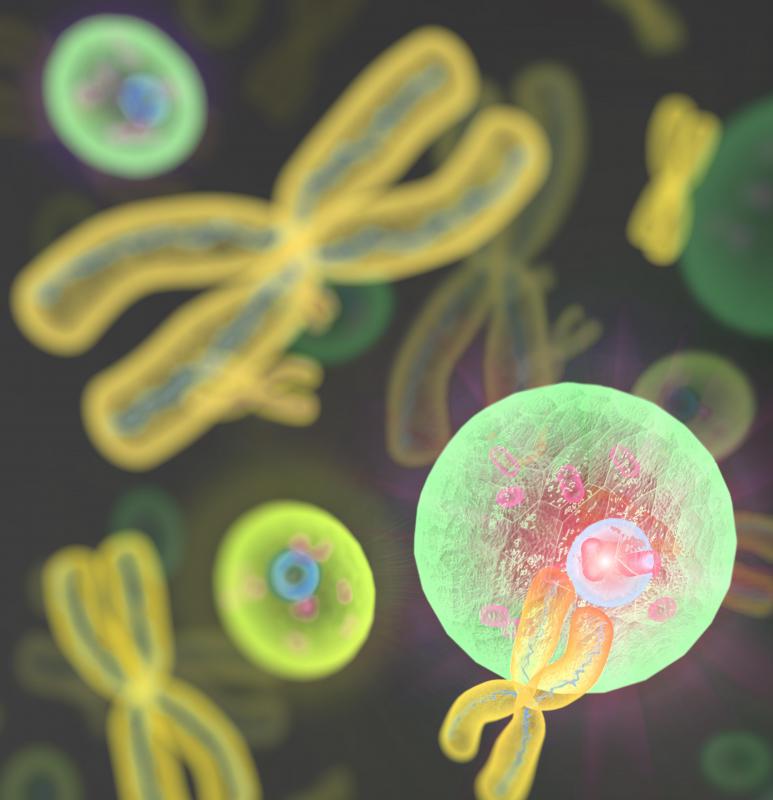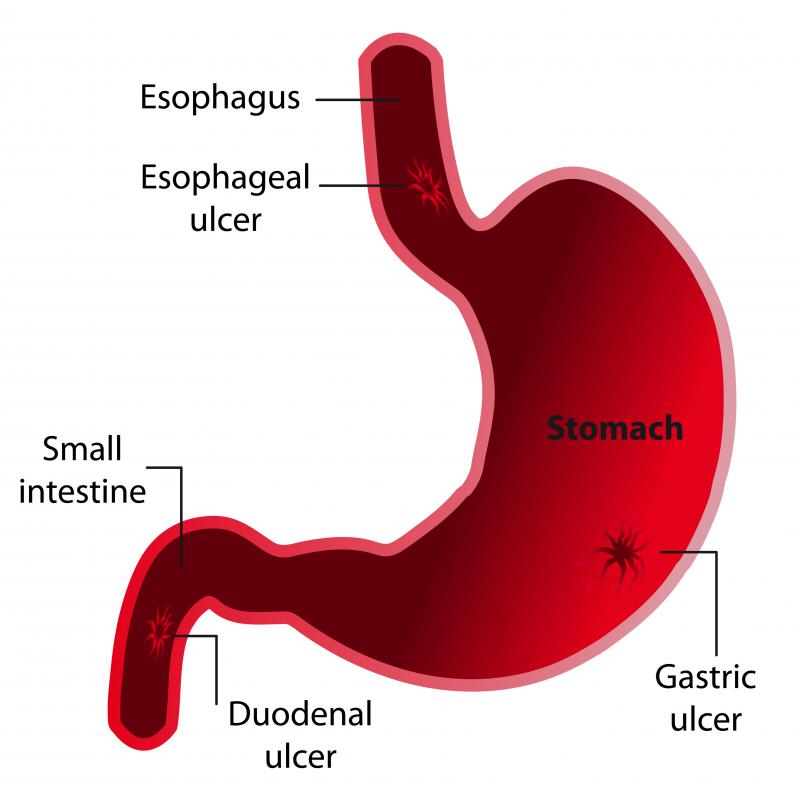At WiseGEEK, we're committed to delivering accurate, trustworthy information. Our expert-authored content is rigorously fact-checked and sourced from credible authorities. Discover how we uphold the highest standards in providing you with reliable knowledge.
What is Barth Syndrome?
Barth syndrome, or BTHS, is a rare, serious, sometimes fatal genetic disorder that affects males. Inherited from the mother, Barth syndrome alters the BTHS gene in the X-chromosome and can cause problems with the heart, immunity, and the male’s ability to thrive. Its onset is typically seen at birth or within a few months of birth.
Early diagnosis of Barth syndrome is complicated but critical. It is thought that Barth syndrome occurs in approximately one out of every 200,000 births, but it is thought to be highly under-diagnosed due to its complicated nature. Diagnostic tools include blood work to determine the white blood cell count, urinalysis to determine the presence of an increased amount of an organic acid typically seen with BTHS, an echocardiogram or heart ultrasound to assess the structure and function or condition of the heart, and a DNA Sequencing Analysis to determine the BTHS gene abnormality.

Some serious symptoms of Barth syndrome can include cardiomyopathy or heart defects and weakness, neutropenia, or a deficiency in white blood cells which decreases the ability of the body to fight infections, and an abnormal increase in an organic acid in the urine. Other problems that can occur include a decrease in appetite and frequent diarrhea, which can lead to slow weight gain, recurrent ulcers, labored breathing, extreme fatigue, chronic headaches or body aches, and mild learning disorders. Boys suffering from Barth’s syndrome can demonstrate hypotonia or poor muscle tone and control, and a shortened stature or small body. Osteoporosis or softening of the bones, and hypoglycemia can also occur.

Complications of Barth syndrome include serious bacterial infections as the body demonstrates a decreased ability to fight infections, and congestive heart failure, which impairs the body’s ability to supply sufficient blood flow to meet the body’s needs and can result in death.
There is no special treatment or cure for Barth syndrome, so alleviating and controlling symptoms is crucial. Constant monitoring of symptoms and treatment of heart symptoms, infections and nutritional problems as they occur and altering diet if necessary, are common courses of action. Occasionally surgery can correct heart defects. With good cardiac or heart monitoring, it is believed that at least 75% of patients will show a gradual improvement which increases the chance of normalizing overall cardiac function. Prompt evaluation and treatment of infectious processes can also increase life expectancy.
AS FEATURED ON:
AS FEATURED ON:















Discuss this Article
Post your comments